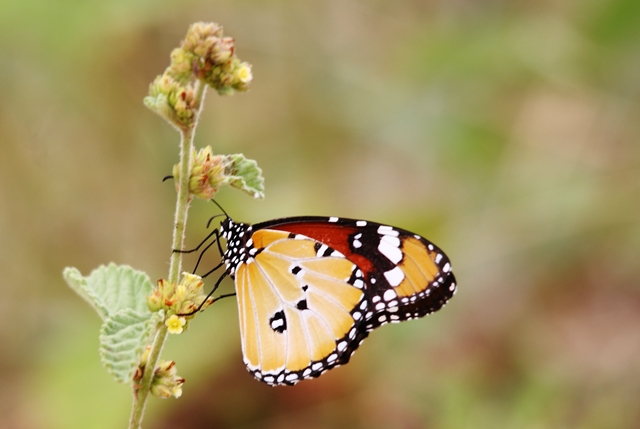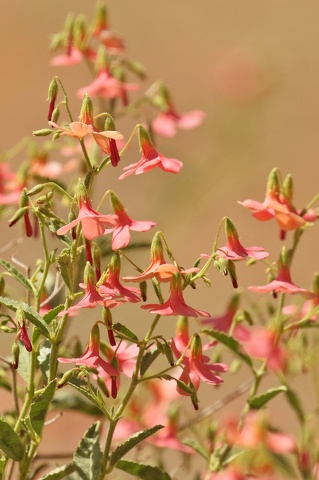Meidebossie Waltheria indica
Order: Malvales. Family: Malvaceae

© Flutterby
Kruger National Park, H4-1
Description
Erect shrubby perennial, which is usually 30 cm to 1 m tall. Most parts of the plant are covered in short shiny tar-shaped and simple hairs.
Leaves are greyish green and narrowly lanceolate (egg-shaped) with irregularly toothed margins, with a pointed to round tip.
The flowers appear throughout the year and are clustered together between the leaves and stems. The flowers have 3 bracts and a cup-like, green (becoming brown with age) calyx with 5 yellow petals, which are fused together at their base and turn reddish brown at maturity.
The fruits are small, 1-seeded capsules and sit in the calyx cup until becoming brown and dry. These perennial plants are quite hardy and spread easily.
Distribution
Not endemic to South Africa (pantropical distribution). Provincial distribution in South Africa: Gauteng, KwaZulu-Natal, Limpopo, Mpumalanga, Northern Cape, North West.
Habitat
In rocky areas in woodland and grassland, often in disturbed places.
Ecology
The tiny yellow flowers seem to attract different flying insects, such as butterflies and bees.
The 1-seeded capsules dry out and become brown, and will germinate in suitable moist soil, once they have fallen.
 © nan
© nan © nan
© nan